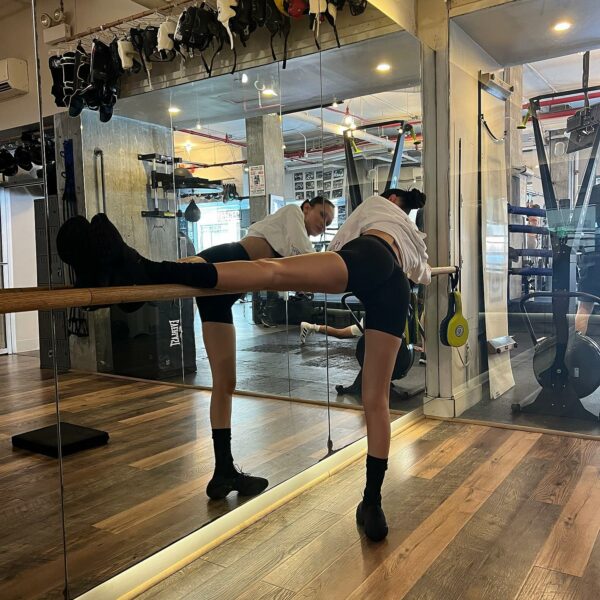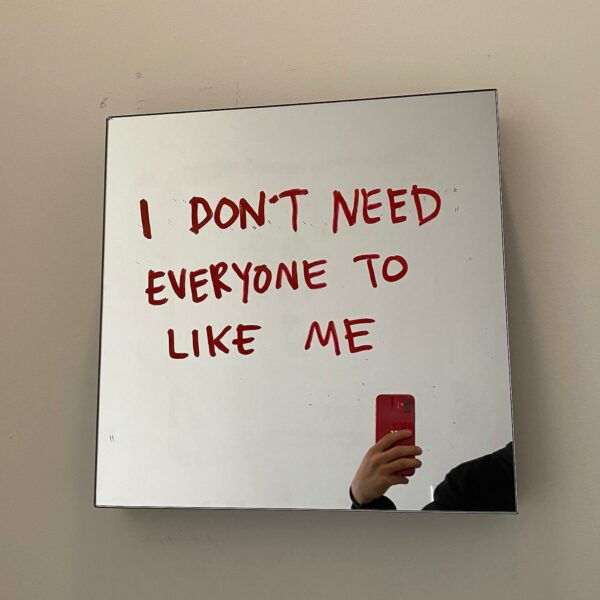So much of how we feel day-to-day has to do with the quality of our thoughts. We are capable of choosing our thoughts and creating positive ones. Although we cannot see them, our thoughts are very real, and are responsible for nearly everything that we manifest in our lives. Depending on the content of our thoughts, we can have a life of peace, security, love, and kindness … or we can build a life of chaos, betrayal, and fear. It all depends on what thoughts we choose.
Learning to take charge of our thinking—to take responsibility for the quality of our “thought life”—is an integral part of the journey towards self-love and self-respect.
Choose a Positive Starting Point for Your Day
It is during those first few moments of consciousness each day, right after we wake up, that we enter the mental space we will occupy for much of the next 24 hours. If the first thing we do is to reach for our phones to browse Facebook, read depressing headlines, or check online dating accounts, we are cheating ourselves out of the mental fuel we need to face the day.
Instead, I offer you a simple suggestion: begin your day by consuming positive, uplifting literature of some kind, or by taking a moment to reflect on gratitude by creating a gratitude list and talking to yourself with loving, kind language. Or perhaps these first five minutes can be spent connecting with your pets, putting on music, making your favorite breakfast, stretching, breathing, or enjoying the sunrise. There are many variations; the point is to make a choice—a choice to begin your day in a positive mindset.
Making a conscious effort to spend the first five minutes of your morning cultivating positive thoughts will make a huge difference throughout the day. As you do this each morning, you will begin to rewire the part of your brain that braces for catastrophe and negative thinking. Once these positive habits are in place, you will come to fondly anticipate opening your eyes each day.
To start, when you wake up, simply refuse to allow any distraction to interrupt your five minutes of positive self-reflection. Speak to yourself kindly and become your own best friend. It may feel strange at first, but it will start to feel normal. Affirmations are my favorite things to say to myself. At the end of every chapter my book, “The Rewired Life,” I have a list of positive affirmations readers can choose from.
These small, attainable changes will reap huge benefits. Try any of these—or all of them for 30 days—and see if you experience a ripple effect.
The brain, as we now know, is incredibly adaptable and highly sensitive to the words that we use every day. How you describe and frame your experiences creates the thoughts and feelings these experiences inspire. Paying careful attention to the words you use is not only an exercise in mindfulness but will actually alter your day-to-day experience.
A perfect example of this is the common experience of asking someone how their day is going. When someone used to ask me how I was, I would say “I have to go to work,” or, “I have to exercise.” Instead, I’ve learned to use the word “get.” Changing these words—“have to” to “get to”—exemplifies the great privileges we have. We “get to” go to school, we “get to” see our parents for Sunday dinner. We are blessed with these opportunities, which many in this world do not have.
I noticed that this practice began to resonate with others, and several people around me responded very enthusiastically to these types of answers. So go ahead—practice seeing your experiences as honors or privileges.
Another example: my father-in- law, when asked how he is, always replies with a resounding, “Fantastic!” It fascinated me at first; he truly radiated that energy, so much so that I truly believed he felt that way. So I decided to try answering in a positive manner on days when I was feeling all over the place, or just sort of “blah,” by saying, “Wonderful!” when someone asked me how I was feeling. Lo and behold, my feelings did change. I felt more lighthearted, and I knew I was uplifting others instead of bringing them down.
This isn’t to say that we can brush away real emotions with mere words, but our words do matter a great deal, and they continuously shape our reality. So, just for today, go ahead and describe your experience in positive terms.
Shop self-help books below:

Erica Spiegelman is a wellness specialist, recovery counselor, and author of the new book The Rewired Life (2018) as well as Rewired: A Bold New Approach to Addiction & Recovery(2015), the Rewired Workbook (2017), the Rewired Coloring Book (2017), all published by Hatherleigh Press. Erica holds a bachelor’s degree in literature from the University of Arizona and is a California State Certified Drug and Alcohol Counselor (CADAC)-II from UCLA. For more information, visit Erica’s website or follow @Erica Spiegelman on Instagram.





































